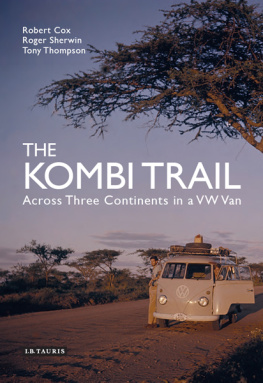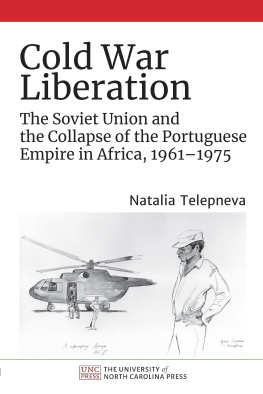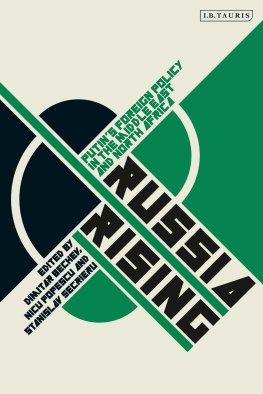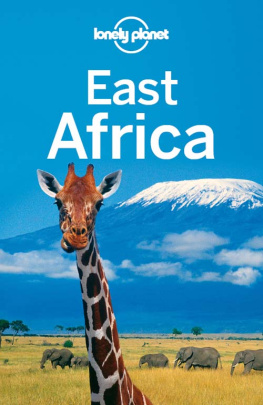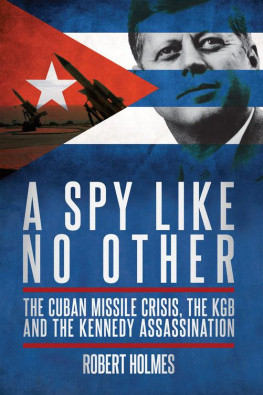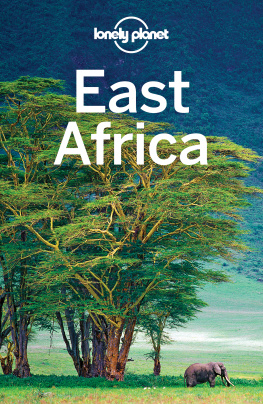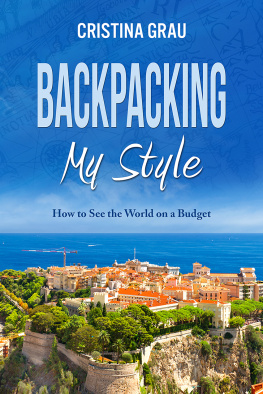
Robert Cox is a former journalist and Eurocrat, with a professional profile ranging from diplomacy to management of EU humanitarian affairs. He is currently active with a policy think-tank in Brussels and divides his time between there, South-west France and travel.
Roger Sherwin spent his working life holding senior executive positions in a wide variety of engineering sectors, ranging from power stations to hospitals, and prisons to the mining industry. Now retired, he is pursuing his interests in photography, golf and wood carving, and continues to enjoy tastes and cultures around the world.
Tony Thompson is a former director of International House an international chain of English as a Foreign Language schools in London and Rome and subsequently set up his own EFL organization. Whilst at Cambridge University, he ran against Oxford University and played rugby for Middlesex. He enjoys walking and travel.
Published in 2013 by I.B.Tauris & Co Ltd
6 Salem Road, London W2 4BU
175 Fifth Avenue, New York NY 10010
www.ibtauris.com
Distributed in the United States and Canada
Exclusively by Palgrave Macmillan
175 Fifth Avenue, New York NY 10010
Copyright 2013 Robert Cox, Roger Sherwin and Tony Thompson
The right of Robert Cox, Roger Sherwin and Tony Thompson to be identified as the authors of this work has been asserted by the authors in accordance with the Copyright, Designs and Patents Act 1988.
All rights reserved. Except for brief quotations in a review, this book, or any part thereof, may not be reproduced, stored in or introduced into a retrieval system, or transmitted, in any form or by any means, electronic, mechanical, photocopying, recording or otherwise, without the prior written permission of the publisher.
ISBN: 978 1 78076 376 7
eISBN: 978 0 85773 325 2
A full CIP record for this book is available from the British Library
A full CIP record is available from the Library of Congress
Library of Congress Catalog Card Number: available
Designed by Anne Srensen
Typeset by Paul Tompsett at freerangeproduction.com
FOREWORD
VW Kombi Phenomenon
O n a fine June morning one of the authors of this book met a number of Volkswagen Transporter Kombi vans and Beetles of all ages streaming along a road in South West France. It turned out they were heading for the town of Rocamadour, perched high above a gorge, and a celebrated pilgrimage site for a over thousand years. This was a modern, motorised pilgrimage. Kombi owners do indeed get fervent about their vehicles. a number of Volkswagen Transporter Kombi vans and Beetles of all ages streaming along a road in South West France. It turned out they were heading for the town of Rocamadour, perched high above a gorge, and a celebrated pilgrimage site for a over thousand years. This was a modern, motorised pilgrimage. Kombi owners do indeed get fervent about their vehicles.
The young men who undertook the Cambridge Afro-Asian Expedition fifty years ago still turn their heads today as one passes on the road. The modern version is still recognisably the same versatile and durable Kombi they knew then despite all the modern conveniences that equip those vehicles today. Fifty years ago Kombis were just fitted with basics wheels, gears, steering, brakes no bad thing given the challenges they faced during the Expedition.
Volkswagen Commercial Vehicles is proud to be associated with this book for several reasons. The Volkswagen Transporter Kombi has indeed become something of an icon and cult vehicle. And, more to the point, this is an unusual book spanning two generations of a fast changing world in three dynamic and often tormented continents . At one point the book says the Expedition experience of the Kombis was c ertainly better than carting vegetables around grocery stores, builders materials or school kids anywhere from Bremen to Barcelona as so many of her lowly sisters did . Wherever they are, whatever they do, these are w ork-horses, treated unsparingly by generations of drivers.
As Europes indeed the worlds leading manufacturer of motor vehicles, Volkswagen is conscious of being a company with a European and global, not just a national, culture. The Cambridge Afro-Asian Expedition was run by British students but throughout the tale that their book tells we are constantly reminded of young Europeans, conscious of their emerging European identity, in empathy with the wider world of peoples, countries and cultures that are increasingly, in a globalising world, Europes own close neighbourhood.
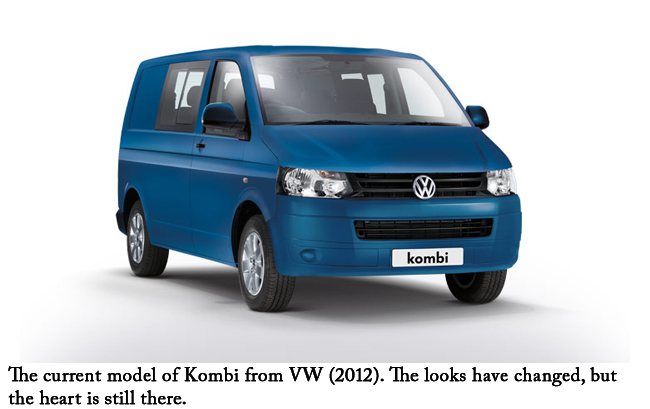
This book is a landmark on how Europe and the wider world evolves and faces up to the enormous challenges of the twenty-first century. Much patience and effort went into producing it. Volkswagen Commercial Vehicles also joins the authors in acknowledging a particular debt to the publishers, I.B.Tauris , and particularly to Jo Godfrey, for her painstaking, imaginative and frequently patient encouragement and guidance to all concerned through its preparation and publication.
LIST OF PHOTOGRAPHS
Photographs credited to Mehmed Demirer and Roger Sherwin.
PREFACE
Bridging a Half-Century
W ith the passage of time Tony Thompson had begun to suspect that before long his children and grandchildren would start asking what all those papers yellowing and gathering dust in the loft were all about. Inveterate traveller, former athlete, he still hikes long distances with a 40-pound pack. He graduated from Cambridge in law, only to abandon it for a more rewarding career in teaching the English language to foreigners. Thus the world was, in different ways, his oyster. Hidden amid those yellowing pages of diaries and scribblings from half a century ago was the story of a combination of travels the Cambridge Afro-Asian Expedition 19612, by eight young men from Cambridge (plus one from Oxford) on the eve of different careers. Tonys travelling companions of that time also had lofts, cellars or places under the stairs hiding papers, maps, photographs and other memories of thousands of miles travelled across three continents at a time when officialdom of all kinds did its damnedest to obstruct free movement. After all these years most of them were still in touch. Traicho Belopopski, a swarthy Bulgarian Communist youth activist and former army officer, had died not long before. Anthony Swanwick, the dapper gentleman from Oxford, was lost somewhere in America.
At his seventeenth-century farmhouse on the edge of the Cotswolds Tony hosted the group for a first brainstorming as winter drew nigh in 2008. What should be done with all these papers, photos, files and other mementos? How about a book? And so it was to be.
Work started in real earnest the following summer under the bougainvilleas at the home in Bodrum, on Turkeys Aegean coast, of Mehmed Arif Demirer. Mehmed is a businessman with fingers in several pies, volumes of writing on the state of his native Turkey and elsewhere to his credit, and is now dipping his toes once more in the swirling waters of Turkish politics. He had been the father of the Expedition when he was a restless young Cambridge engineering student. Most available floor-space at Mehmeds house was soon covered with old papers, pictures and newspaper cuttings. Tried and stretched memories were put to work over several days of sorting this stuff out. Tim Parkinson, the expeditions chief engineer, with a career behind him in industry ranging from diesels to aircraft, when not dinghy-sailing, applied computers and scanners to all this stuff. Evening sundowners, the delicious Turkish cooking of Mehmeds wife, Gl, or sea-fresh fish at a nearby cove, boosted enthusiasm for distilling life out of these half-century-old mementoes into some form of recognizable shape. Then followed months of writing and related head-scratching. Three of the companions particularly wielded their pens: Roger Sherwin, a former senior executive with major British engineering firms in their heyday, an aggressive rugby wing-forward in his youth, now a sculptor of no mean talent; Tony, as supervisor; and Bob Cox, once a journalist and then a Eurocrat, that breed held in high suspicion in todays Britain, working in different guises from diplomatic, to managerial, to peace-keeper. Bob wrote the final edit of this book; Roger, in addition to writing, would mastermind the photographs. Most participants pens have left their traces. Absent from this Turkish fray were: Nigel Robertson, ebullient historian turned accountant, with a most prodigious memory; and Peter, now Lord, Temple-Morris, barrister and politician with a keen nose for geopolitics.
Next page
